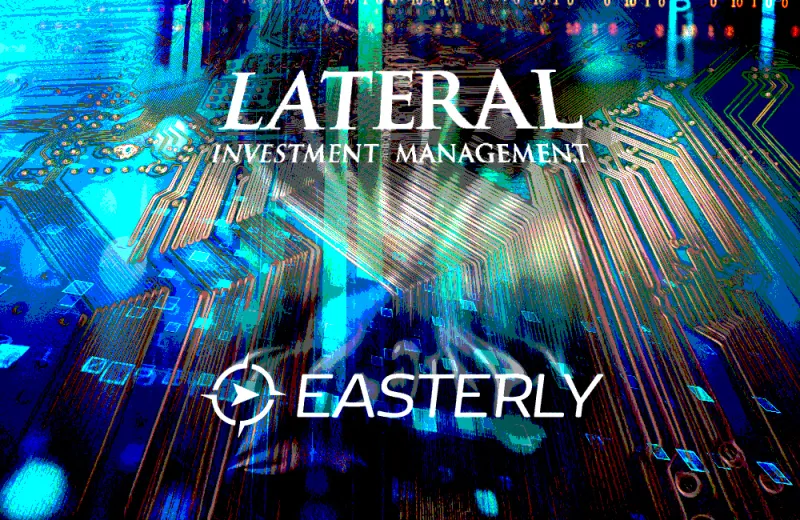Few sectors of the market remain somewhat untouched by private investment managers. Except, that is, lower middle market companies raising capital for the first time.
According to Lateral Investment Management founder Richard de Silva, these owner-operated businesses are notoriously challenging to source. But as a former entrepreneur himself, de Silva believes he and his team have the expertise to choose the best companies in that area of the market — and build what they need to succeed.
On Wednesday, $3 billion Easterly Asset Management announced a strategic partnership with Lateral. Easterly will provide access to its technology, fundraising, and operations expertise, and will invest alongside the firm in certain deals. The duo also just closed their first deal — a $35 million co-investment in Morae Global, which is a technology service provider for the legal industry.
According to Easterly’s founder, Darrell Crate, Easterly is providing expertise and resources — in addition to a co-investment — in the hopes of freeing up de Silva and his team to focus on sourcing deals.
“There’s a kind of compassion and understanding that it takes to work with management teams in different business areas, particularly those that never had institutional capital,” Crate said, adding that de Silva and his team have that in spades.
Lateral sources its deals on its own, rather than participating in banker-led processes. They start with themes — recently this has included profitable companies that have a “service orientation” component, de Silva said. The firm has been looking at language translation businesses, artificial intelligence-powered firms, and water technology, among other areas of the market.
The firm starts working with portfolio companies by first taking minority stakes. The goal is to eventually grow its ownership in the portfolio company, but first, they focus on building trust with the portfolio company. “Managers are dilution sensitive,” de Silva said. “They love the baby that they’ve built. They’ve bootstrapped for a reason.”
The strategic partnership comes at an interesting time in the private investment market. Limited partners have been searching for yield in new places, away from some of the mega managers that were in vogue during 2021’s venture boom.
“We went through a cycle where risk and reward got disconnected and people were paying forward on valuations in a way that they can’t anymore,” de Silva said. “Even if they wanted to, the debt markets have made that prohibitively expensive.”
Small firms and funds, particularly those deploying capital in less popular areas of the market, have become more appealing to allocators in recent months. “We have found a good niche that isn’t over-trafficked,” de Silva said.







